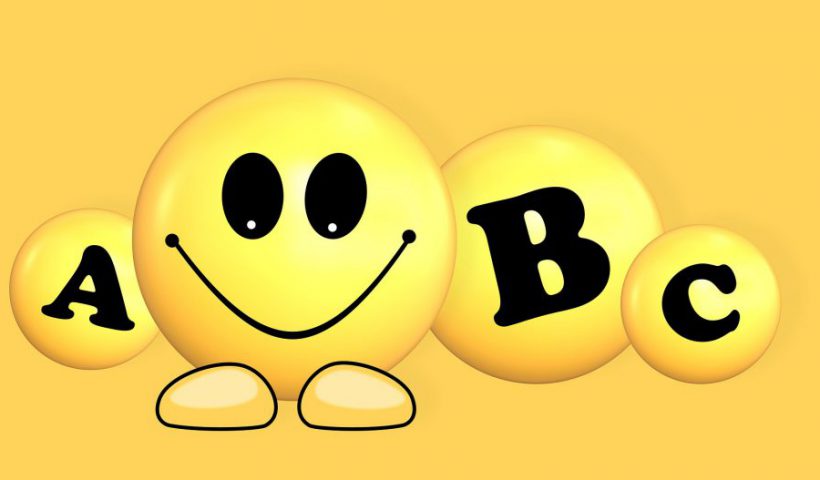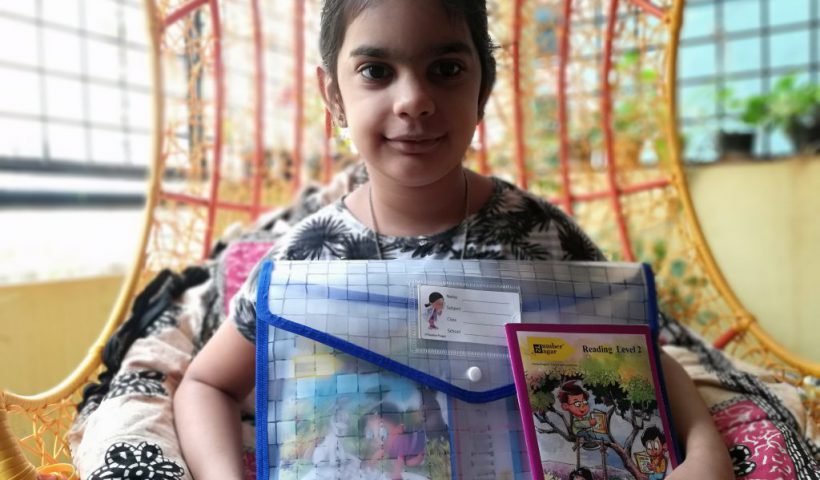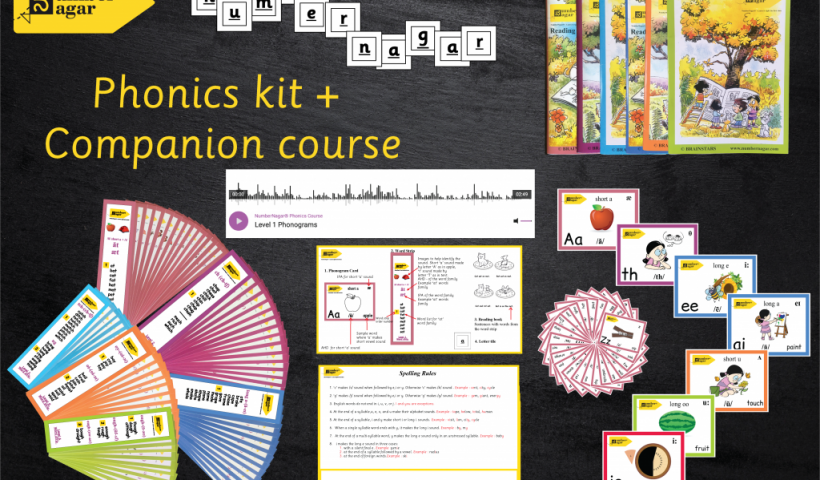English spellings can be confusing to learn. Given that English has a non-ideal phonemic orthography, the pronunciation and the spelling do not have a one-to-one relation also. Why are put and cut pronounced differently, even though they have the same vowel? This is one of the few common questions that…
View More Learning English Spellings through PhonicsCategory: Communication
3 reasons why you should learn English through Phonics
Learn English with Phonics When a strong foundation of basic concepts is laid at a young age, complex concepts can be learned effectively. Our team’s experience at NumberNagar® tells us that this is possible when we learn English through Phonics. When I was in primary and pre-primary school, English learning…
View More 3 reasons why you should learn English through PhonicsThe Sounds of ‘S’
What sound comes to your mind when you think of the letter ‘s’? Is it the hissing sound ‘ssssssssss’? You would be right. The hissing sound ‘ssss’ is the default sound of the letter ‘s’. However, did you know that the letter ‘s’ also makes 3 other sounds? It sure…
View More The Sounds of ‘S’‘Read’ a sound
Guide to sounds Have you wondered how to ‘read’ a sound? In an earlier article, we learned how the English language deviates from ideal phonemic orthography. Nevertheless, the letter-sound correlation is a key aspect of mastering the language. A letter is a written representation – also known as grapheme. A…
View More ‘Read’ a soundWhat is the most valuable gift you have given your child?
Observation and learning As the mother of a 7-year-old, I keep observing and learning new things. Ever since I became a mother, every day I re-learn something or the other. Some weeks ago, my daughter was riding her cycle and playing with her friends. My next-door neighbour’s kid does not…
View More What is the most valuable gift you have given your child?Learn English with Phonics
Learn it right the first time At NumberNagar®, we strongly advocate learning it right the first time. This is especially true with basic concepts in subjects and language. When we learn basic concepts right the first time, we open ourselves to learning-related and complex concepts easily. Learning English through the…
View More Learn English with PhonicsEnglish is a ‘phunny’ language
Quirks of using English language Our team at NumberNagar® is working extensively on Phonics. Phonics is a method of teaching and learning the English language by correlating sounds to letters and symbols. The language by itself has enough quirks to cause confusion. Add to it the differences in British and…
View More English is a ‘phunny’ languageThe vicious effect of clickbait information
Introduction Over the last two decades, the internet has revolutionised the way in which we access and consume information. What would take weeks of research in libraries is now available at the click of a button within microseconds. No doubt this kind of access has driven progress in orders of…
View More The vicious effect of clickbait informationNumberNagar® Dialogue Series – On Making Mathematics the Way of Your Life
Introduction Mathematics is all around us, whether we see it or not. Mathematics is the gear and machinery which drives things we can see, feel, and touch, and things we can’t. We got a very good perspective on how to get command in Mathematics in our last article. While doing…
View More NumberNagar® Dialogue Series – On Making Mathematics the Way of Your LifeNumberNagar® Dialogue Series – On Bringing Fluency in Spoken English in Children
Introduction English is as good as my native language and I’m fluent in it. However, I was not always like this. My “mother-tongue” is Hindi. So, when I started getting into debates, elocution, and speeches during my school days, I had to translate the sentences from Hindi to English, many…
View More NumberNagar® Dialogue Series – On Bringing Fluency in Spoken English in Children









